Warmly welcome to an international meeting for building solidarity, security and peace “Wild and Dangerous Hope – Facing Urgent and Slow Violence” in collaboration with the Sigtuna Foundation!
This event connects to the upcoming 100 year anniversary of Nathan Söderblom’s visit to the US 1923 and the World Conference of Life and Work in 1925, CEMUS 30 year anniversary during 2022 and the upcoming ClimateExistence conference 2023.
When: November 14, 2022, kl. 15.00-20.00 CET followed by social kl. 20.00-21.00 CET
Where: The Sigtuna Foundation Library, Sweden and online
Registration participation at the Sigtuna Foundation: https://sigtunastiftelsen.se/events/det-vilda-och-farliga-hoppet/ (limited to 50 in-person attendees)
Registration for online participation: https://forms.gle/6EGGwAfymt8XtQLd9
Confirmed speakers and panelists
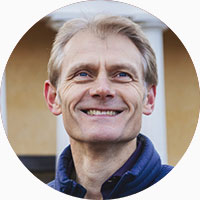 Kevin Anderson is professor of Energy and Climate Change, Tyndall Centre for Climate Change Research, at the University of Manchester. He was the second Zennström visiting professor in Climate Change Leadership at Uppsala University, now visiting professor at Uppsala University and adjunct professor at the University of Bergen. Kevin is a well-known and established researcher within climate change science who engages frequently with policy-makers, the private sector, civil society as well as the media. He has pioneered research on carbon budgets and pathways to acceptable mitigation levels, and worked on the technical, social and economic interactions involved in the transformation of energy systems, the mitigation and adaptation to climate change.
Kevin Anderson is professor of Energy and Climate Change, Tyndall Centre for Climate Change Research, at the University of Manchester. He was the second Zennström visiting professor in Climate Change Leadership at Uppsala University, now visiting professor at Uppsala University and adjunct professor at the University of Bergen. Kevin is a well-known and established researcher within climate change science who engages frequently with policy-makers, the private sector, civil society as well as the media. He has pioneered research on carbon budgets and pathways to acceptable mitigation levels, and worked on the technical, social and economic interactions involved in the transformation of energy systems, the mitigation and adaptation to climate change.
Read more about Kevin Anderson at https://tyndall.ac.uk/people/kevin-anderson/, https://kevinanderson.info/ and at Twitter https://twitter.com/KevinClimate
Jonas Jonson, Author and Bishop Emeritus
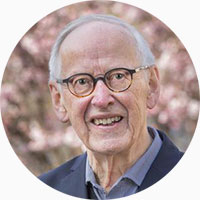 Jonas Jonson is bishop emeritus in Strängnäs diocese and associate professor in missiology. He has among other things been a member of the World Council of Churches central committee, deputy secretary general of the The Lutheran World Federation and chair of the collaborative committee of World Council of Churches and the Catholic Church. His book from 2014 Jag är bara Nathan Söderblom, satt till tjänst (I am just Nathan Söderblom, put in service) is of special relevance for this event.
Jonas Jonson is bishop emeritus in Strängnäs diocese and associate professor in missiology. He has among other things been a member of the World Council of Churches central committee, deputy secretary general of the The Lutheran World Federation and chair of the collaborative committee of World Council of Churches and the Catholic Church. His book from 2014 Jag är bara Nathan Söderblom, satt till tjänst (I am just Nathan Söderblom, put in service) is of special relevance for this event.
Read more: https://www.verbum.se/livsfragor/jag-ar-bara-nathan-soderblom-satt-till-tjanst
Isak Stoddard, PhD Candidate Uppsala University
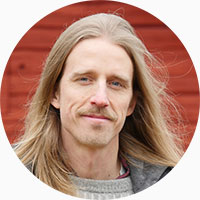 Isak Stoddard is a PhD candidate in Natural Resources and Sustainable Development at the Department of Earth Science, Uppsala University. His research is currently focused on the strategies and imaginaries informing regional climate and energy transitions within Sweden. Over the past decade he has worked in various capacities at the student-initiated Centre for Environment and Development Studies (CEMUS) at the University of Uppsala and Swedish University of Agricultural Sciences. At CEMUS, his worked mainly focused on developing transdisciplinary approaches to higher education and learning as a response to intractable environmental and societal issues. He has an educational background in engineering physics and energy systems. A dual citizen of Sweden and the United States, he is now based in Uppsala, but enjoys frequent adventures to the Scandinavian mountains for skiing, wandering and climbing.
Isak Stoddard is a PhD candidate in Natural Resources and Sustainable Development at the Department of Earth Science, Uppsala University. His research is currently focused on the strategies and imaginaries informing regional climate and energy transitions within Sweden. Over the past decade he has worked in various capacities at the student-initiated Centre for Environment and Development Studies (CEMUS) at the University of Uppsala and Swedish University of Agricultural Sciences. At CEMUS, his worked mainly focused on developing transdisciplinary approaches to higher education and learning as a response to intractable environmental and societal issues. He has an educational background in engineering physics and energy systems. A dual citizen of Sweden and the United States, he is now based in Uppsala, but enjoys frequent adventures to the Scandinavian mountains for skiing, wandering and climbing.
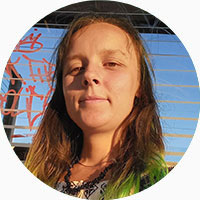 Anastasiia Onufriv is a Climate Activist engaged in Fridays for Future Ukraine and English teacher. Fridays for Future Ukraine is a part of the global movement started by Greta Thunberg in 2018 with weekly climate strikes and manifestations every Friday.
Anastasiia Onufriv is a Climate Activist engaged in Fridays for Future Ukraine and English teacher. Fridays for Future Ukraine is a part of the global movement started by Greta Thunberg in 2018 with weekly climate strikes and manifestations every Friday.
Read more: www.facebook.com/fridaysstrike
Kholod Saghir, Editor in Chief Swedish PEN
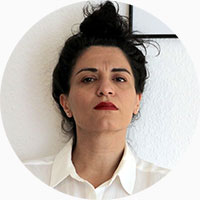
Photo: Ghayath Almadhoun
Margit Richert, Author and Journalist based in Kyiv, Ukraine
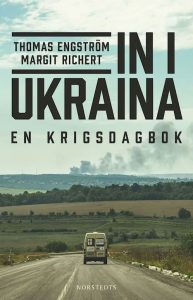 Margit Richert has traveled and written for a number of Swedish newspapers such as Svenska dagbladet, Dagens nyheter and Aftonbladet, co-authored the climate futuristic trilogy Nordmark (Nattavaara, Armasjärvi and third part forthcoming) together with Thomas Engström, and this year In i Ukraina – En krigsdagbok (Into Ukraine – A war journal) also with Thomas Engström.
Margit Richert has traveled and written for a number of Swedish newspapers such as Svenska dagbladet, Dagens nyheter and Aftonbladet, co-authored the climate futuristic trilogy Nordmark (Nattavaara, Armasjärvi and third part forthcoming) together with Thomas Engström, and this year In i Ukraina – En krigsdagbok (Into Ukraine – A war journal) also with Thomas Engström.
Time
Program
15.00-15.05
Welcome and introduction – Anders Claesson and Daniel Mossberg
15.05-15.10
Intermission – words, sounds and images of war and violence
15.10-15.40
Nathan Söderblom’s peace work in a time of war and fascism – Jonas Jonason [Author and Bishop Emeritus]
15.40-16.10
Into Ukraine – Margit Richert [Author and Journalist based in Kyiv, Ukraine]
16.10-16.40
Climate Activism and Violence in War – Anastasiia Onufriv [Climate Activist Fridays for Future Ukraine]
16.40-16.50
Short break
16.50-17.20
Carbon Budgets, Climate Justice, Slow Violence – Kevin Anderson [Professor Tyndall Centre, University of Manchester]
17.20-18.15
Food, drinks and conversations
18.15-19.00
Panel 1 on Communities and Places for Resisting Violence – Jonas Jonsson, Isak Stoddard and guest
19.00-19.45
Panel 2 on Culture, Activism and Other Ways of Facing Present and Future Violence – Kevin Anderson, Kholod Saghir and guest
19.45-19.55
Intermission – words, sounds and images of war and violence
19.55-20.00
Concluding thoughts and feelings – Daniel Mossberg and Anders Claesson

Climate collapse is supply chain collapse and economic collapse and reproductive and civil rights collapse and social collapse and democracy collapse and ecosystem collapse and biodiversity collapse and — Everything is connected.
Alexandria Villaseñor, Twitter, May 15 2022With this international meeting we aim to bring together different actors, activists, academics, artists in a critical dialogue on how to in a meaningful and passionate way continue the work for human dignity, lively democracy and a thriving community of life.
Everything is really connected and intertwined in a simple and complicated web of dependencies and interactions. One cannot separate the lessons learned from the pandemic on human and ecosystem health from the climate policies needed for societal transformation to the ongoing brutal invasion of Ukraine and ripples felt across the world. We should with inspiration from similar historical times and groups find bridges that brings together different causes and interests in the global community so that we can build understanding, solidarity and support systems to deal with the next great war, the next runaway climate disaster, the next violent authoritarian take over.
Join us for an intense, creative and critical day of dialogues and discussions!
Måndag 14 november kl 15-20 i biblioteket.
Det vilda och farliga hoppet – Internationellt möte för en möjlig planetär solidaritet och fred
Vad skapar engagemang, mobilisering och förändring, och vad kan vi lära av historien? Vi möts, akademiker, aktivister, artister, och samtalar kring möjliga sätt att vara och tänka – kring en levande planetgemenskap – då CEMUS firar 30 år och inför nästa års KlimatExistens på Sigtunastiftelsen. Det blir föredrag, samtal och mingel med bar och tilltugg.
För drygt 100 år sedan skapades Sigtunastiftelsen av Uppsalastudenter, en visionär dialogplats för möten mellan olika människor, tankar och rörelser runt tidens frågor utifrån en kristen humanism. Nathan Söderblom var stiftare och inspiratör och skapade 1915 sin vision att samla världens kristenhet för fred – samtidigt som kvinnornas fredsmarsch i Haag med bland andra Elin Wägner och Emilia Fogelklou. Söderbloms fredsarbete resulterade i det ekumeniska världsmötet i Stockholm 1925, där hans mobilisering av de amerikanska lutheranerna i Augustana College 1923 var viktig, liksom i Nobels fredspris 1930. Det ekumeniska världsmötet 1925, som engagerade en ung Dag Hammarskjöld, blev en viktig utgångspunkt för Kyrkornas världsråd 1948, en etisk pendang till FN. Klimatfrågan togs tidigt upp av Fogelstadskvinnorna och deras fredsvision Fred med jorden 1940 av Elin Wägner och Elisabeth Tamm, Rachel Carson väckte 1962 den internationella klimatdebatten och på 1970-talet togs miljöfrågorna upp på både FNs första miljökonferens i Stockholm 1972 och i Kyrkornas världsråd. Idag är Naturens rättigheter och End Ekocide en idé och rörelse som mötts på Sigtunastiftelsen och som nått både FN och Kyrkornas världsråd.
I år är det 60 år sedan Rachel Carsons Tyst vår, 50 år sedan Olof Palme lanserade begreppet ekocide för brott mot naturen på FNs miljökonferens i Stockholm och nästa år är det 100 år sedan Söderbloms möte på Augustana College och 75 år sedan Kyrkornas världsråd skapades och FNs deklaration om mänskliga rättigheter 1948. Vi möts och samtalar kring engagemang, mobilisering och förändring. Vilka hållbara analyser, idéer, metoder och framtidsberättelser ser vi? Hur ser samhällsberättelser i samklang med naturen ut – ett mer vilt tänkande, natur, ande, kultur och teknik? Vad och vem väcker det vilda hoppet och ger inspiration till engagemang och förändring igår och idag? Hur hör den snabba internationella mobilisering som pandemin och pågående krig skapat samman med den snabba klimatmobilisering Greta Thunberg, Vanessa Nakate och Xiye Bastida skapat bland världens unga och den internationella mobilisering som skapas, som till exempel Ekocide-lagstiftningen, utifrån det långsamma våld på natur och samhälle som klimatkrisen utgör?
Medverkande meddelas senare på hemsidan.
Samverkan med CEMUS, Centre for Environment and Development, Uppsala universitet och SLU.
Monday November 14 kl 15-20 CET in the Sigtuna Foundation Library, Sweden and online
Wild and Dangerous Hope – International meeting for a possible planetary solidarity and peace
What creates commitment, mobilization and change, and what can we learn from history? We meet, academics, activists, artists, in dialogue and discussion on possible ways of being and thinking – about a planetary community – as CEMUS celebrates 30 years and the next year’s ClimateExistence conference at the Sigtuna Foundation. There will be talks, conversations and mingle, bar and light dinner.
Over a 100 years ago the Sigtuna Foundation was created by Uppsala students, a visionary dialogue place for meetings between different people, thoughts and movements concerning that times’ issues based in Christian humanism. Nathan Söderblom was a founder and inspirer and created 1915 his vision to gather the world’s Christian congregations for peace – at the same time as the women’s march for peace in the Hague with Elin Wägner and Emilia Fogelklou among others. Söderblom’s work for peace resulted in the World Conference of Life and Work in 1925, where his mobilization of the American Lutherans at Augustana College 1923 was important. Söderblom was awarded the Nobel Peace prize in 1930. The World Conference of Life and Work 1925, that engaged a young Dag Hammarskjöld (later secretary general for the UN), became an important starting point for the World Council of Churches 1948, an ethical companion to the United Nations. The climate issues was early on raised by the Fogelstad women’s movement and their vision for peace “Fred med jorden” (Peace with Earth) authored by Elin Wägner and Elisabeth Tamm, Rachel Carson awoke 1962 the international environmental and climate debate and in the 1970’s the environmental issues were raised at both the UN first environmental conference in Stockholm 1972 and the World Council of Churches. Today Nature’s Rights and End Ecocide are ideas and movements that have convened at the Sigtuna Foundation and has reached both the UN and the World Council of Churches.
This year it’s 60 years since Rachel Carson’s ”Silent Spring”, 50 years since Swedish prime minister Olof Palme launched the concept of ecocide for crimes against nature at the UN environmental conference in Stockholm and next year it’s 100 years since Söderblom’s visit to Augustana College and 75 years since the World Council of Churches was created and the UN declaration on universal human rights in 1948. We meet and discuss commitment, mobilization and change. Which sustainable ways of understanding, ideas, methods and future narratives can we envision? How does societal narratives in sync with nature look like – a more wild thinking, nature, spirit, culture and technology? What and who stirs the wild hope and gives inspiration to action and change today and tomorrow? How is the international response to the pandemic and the ongoing war in Ukraine connected to the calls for a rapid climate transition that Greta Thunberg, Vanessa Nakate and Xiye Bastida and others have created among the world’s young? And the international mobilization on for example Ecocide legislation? Starting from slow violence concerning nature and society, such as the climate emergency, and connecting it to the urgent violence of the war in Ukraine.
Guests will be announced as they are confirmed on this page.
Collaboration between the Sigtuna Foundation and CEMUS, Centre for Environment and Development, Uppsala University and SLU.
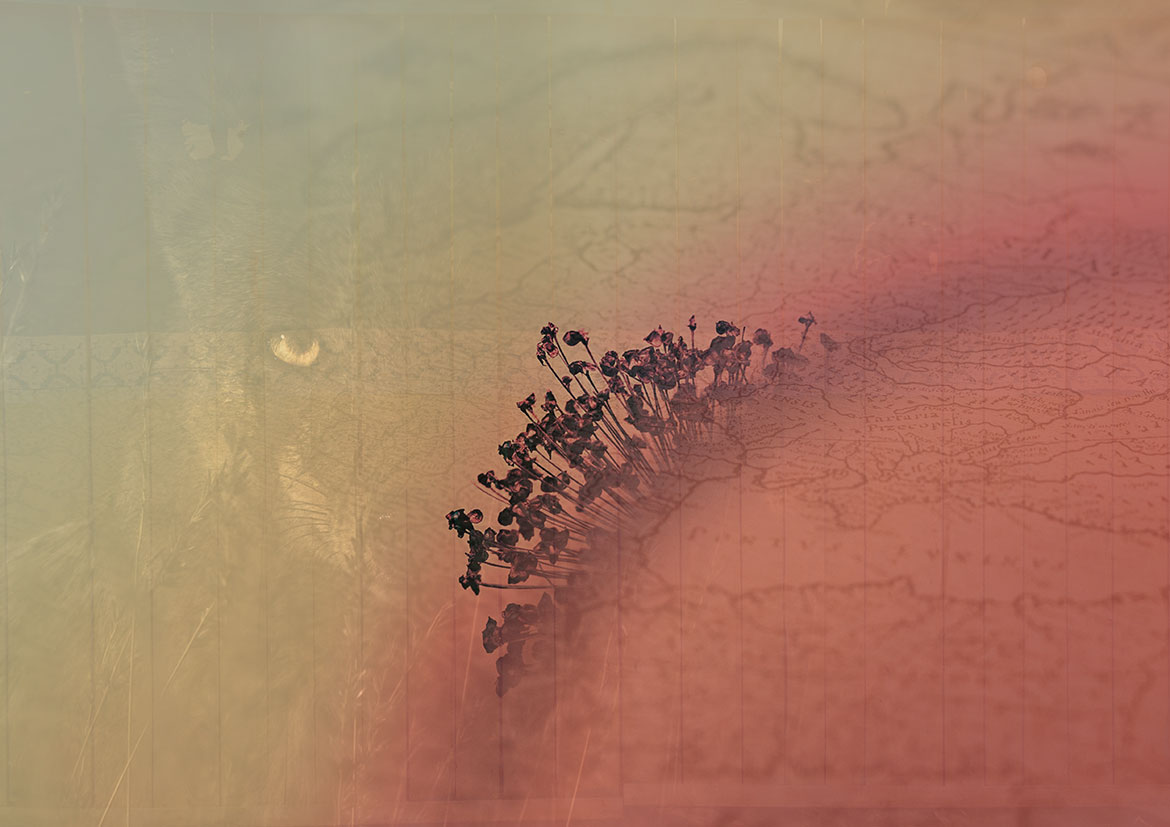
Despair is their tool. Exhaustion, fear and isolation are their tools.
Cynicism is the obedience they seek from you.
Refuse to obey: Take heart.
Embrace defiant optimism.
Hope huge.Alex Steffen, Twitter, 2018
Entrenched interests use despair, confusion and apathy to prevent change. They encourage modes of thinking which lead us to believe that problems are insolvable, that nothing we do can matter, that the issue is too complex to present even the opportunity for change. It is a long-standing political art to sow the seeds of mistrust between those you would rule over: as Machiavelli said, tyrants do not care if they are hated, so long as those under them do not love one another. Cynicism is often seen as a rebellious attitude in Western popular culture, but, in reality, cynicism in average people is the attitude exactly most likely to conform to the desires of the powerful — cynicism is obedience.
Optimism, by contrast, especially optimism which is neither foolish nor silent, can be revolutionary. Where no one believes in a better future, despair is a logical choice, and people in despair almost never change anything. Where no one believes a better solution is possible, those benefiting from the continuation of a problem are safe. Where no one believes in the possibility of action, apathy becomes an insurmountable obstacle to reform. But introduce intelligent reasons for believing that action is possible, that better solutions are available, and that a better future can be built, and you unleash the power of people to act out of their highest principles. Shared belief in a better future is the strongest glue there is: it creates the opportunity for us to love one another, and love is an explosive force in politics.
Great movements for social change always begin with statements of great optimism.Alex Steffen, Nov 19, 2016, 'The Politics of Optimism - Optimism is a political act; cynicism is obedience'
We are now faced with the fact that tomorrow is today. We are confronted with the fierce urgency of now. In this unfolding conundrum of life and history there is such a thing as being too late. 'Beyond Vietnam: A Time to Break Silence' by Rev. Martin Luther King, 4 April 1967
